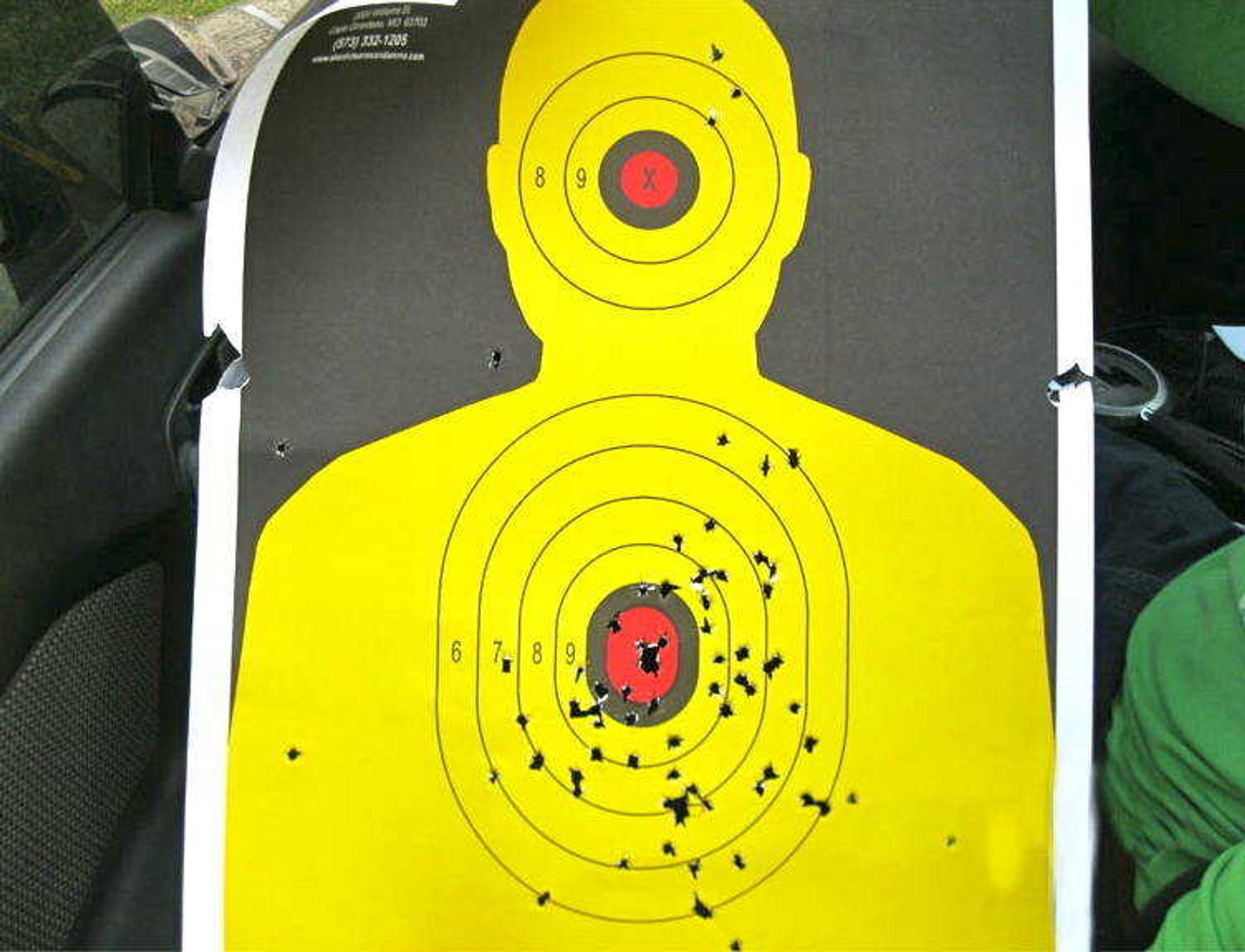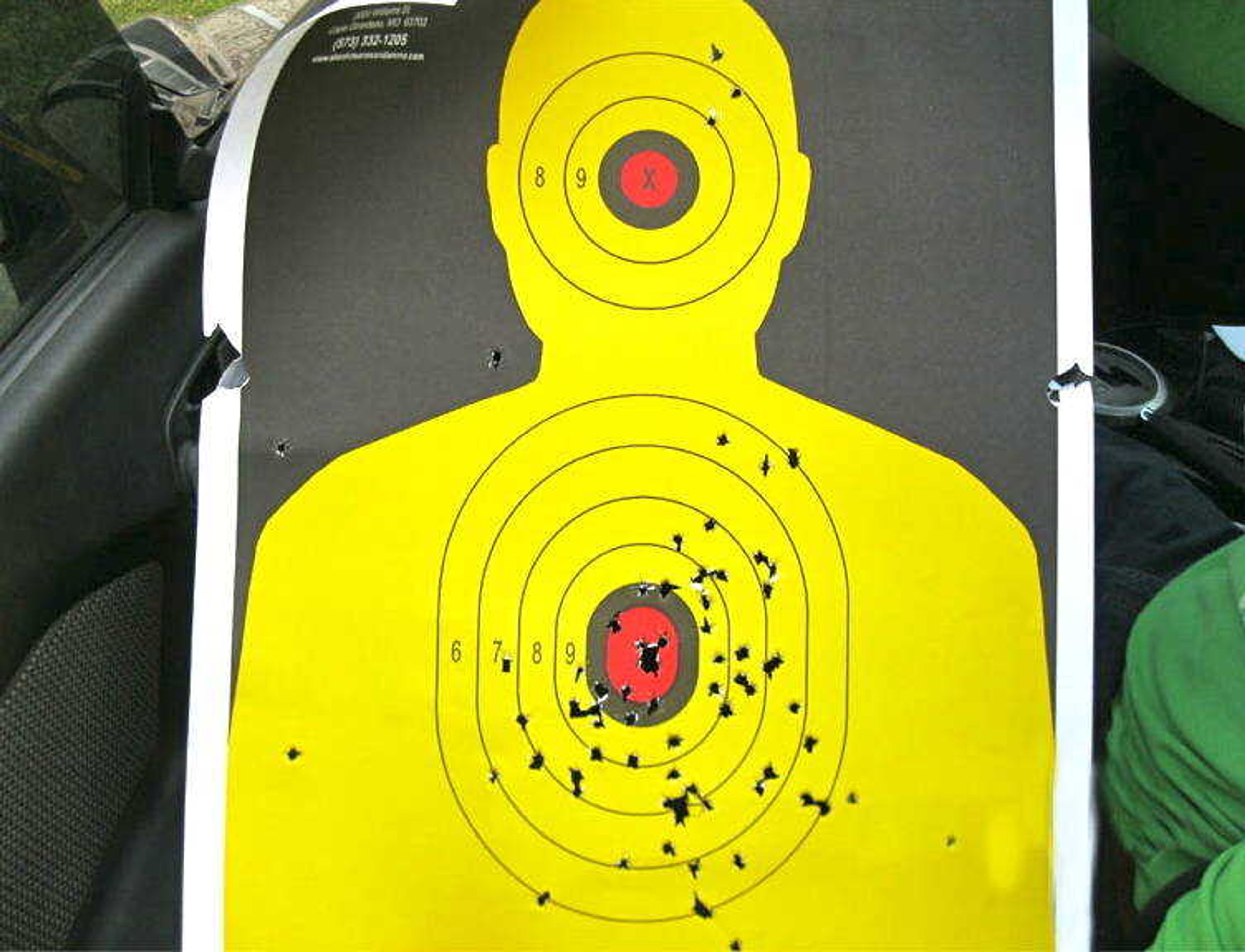Whether or not concealed weapons should be allowed on state-owned college and public school campuses has recently become a hot button issue across the nation. The shooting tragedy at Sandy Hook Elementary in Newtown, Conn., on Dec. 14 helped sparked a renewed public interest in gun control and concealed carry licenses on college campuses.
An individual must obtain a concealed carry license before they can legally carry a concealed weapon in public. According to Missouri laws, students, faculty, staff or any individual on state-funded campus property are not allowed to have concealed weapons on the premises. Southeast Missouri State University is included in this policy.
"I don't think people should carry guns around campus, students or faculty," history major Anthony Laurentius said. "That is just asking for someone get shot, and if the teachers were armed I would feel like I was in jail and not in school."
The National Rifle Association announced that their membership has "spiked" by around 250,000 since the Sandy Hook Elementary shooting, which left 20 6- and 7-year olds and seven adults dead. The shooting has inspired a heated debate that has even caused the federal government to consider legislation to control gun ownership and crack down on gun trafficking.

There also has been a resurgence of national political groups like Students For Concealed Carry who are in support of allowing concealed weapons on campus as a safety measure.
"For years, colleges have cultivated a deadly illusion that a gun-free policy makes us safer," said David Burnett, Students For Concealed Carry spokesman said in a press release. "The mass shootings we've seen in recent years only prove killers don't play by the rules. Today we're calling on legislators in every state to change those rules and stop colleges from trampling on the rights of good people wanting to defend themselves."
Some students at Southeast agree that responsible gun owners should be allowed to protect themselves and others in case a violent situation arises.
"I'm very protective, especially of the innocent," Southeast theatre major Ken Westbrook said. "In this case, I would love to be able to carry my weapon in class. This way, in the case of a breakout, I could act. But, if nobody had guns we wouldn't have to worry about it. The flip side of this is if I began to act, someone else with a concealed carry weapon could act on me, accidentally thinking I may be an accomplice to the shooter [or shooters]."
According to the National Conference for State Legislature's web site, five states now have provisions allowing the carrying of concealed weapons on public campuses. These states are Colorado, Mississippi, Oregon, Utah and Wisconsin.
"I feel like a campus should be safe enough that students do not feel the need for concealed carry," Southeast marine biology major Brittany Lillibridge said. "It's a personal choice. However, Southeast should do all they can to make their students feel safe so they don't turn to that. But as of right now there have been many muggings and assaults around campus and I can understand if people want to protect themselves."
Del Hollinger, owner and lead instructor at ADS Public Safety Training in Perryville, Mo., is a licensed concealed carry instructor. He feels that if a person went through all the correct avenues to get their license they should be able to carry on campus. Hollinger feels that at least teachers and administration should have the right to carry concealed weapons in this scenario.
"I have been getting a lot of teachers and administrators that are part of local [public] school boards that are considering amending their concealed weapon policies," Hollinger said. "In my opinion, concealed weapons should be on campus if they are in the hands of responsible people."
The Missouri senate passed legislation that lowered the age to get a concealed carry license from 23 to 21 in 2011. Concealed carry licenses can be obtained in Cape Girardeau through the Cape County sheriff's office. These licenses require that in addition to being 21, an individual must go through state-mandated safety training, train in gun operation and pay a fee. Applicants can't have a felony charge and have to be of sound mind as determined by the state as well.
Hollinger said that concealed carry training can cost anywhere from $75 to $100.
"My classes go beyond just going over government requirements," Hollinger said. "We teach law enforcement tactics, like how to search for an intruder and the physiology of how a weapon is used in force. I even offer a 'sweetheart' special where I offer training to couples on Valentines Day."
On Feb. 6, House democrats announced they will unveil 15 proposals in hopes to curb gun violence that resemble President Barack Obama's plan and will include a call for banning assault weapons.
The democrats' recommendations will also include barring high-capacity magazines carrying more than 10 rounds of ammunition, requiring background checks for all gun sales and prohibiting gun trafficking, all of which Obama proposed after the Sandy Hook Elementary shooting.
But Dellinger said he feels that when shootings like the one at Sandy Hook happen, the issue of limiting gun ownership always arises.
"Gun control doesn't work to stem violence," Hollinger said. "Criminals do not pay attention to the laws. The criminals still get the weapons and don't get registered. In light of recent events, gun control laws are a knee-jerk reaction. This legislation usually doesn't go far. People take their second amendment rights seriously."
[a]Hannah Parent:
re edited. :)





